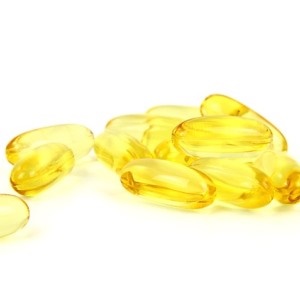
When hair follicles get plugged with oil (sebum) and dead skin cells, the result can be inflammation and infection.
This is called acne vulgaris. Acne is most noticeable on the face, but can also appear on the neck, back, shoulders and chest.
The body produces sebum to keep the skin supple, but sometimes because of mainly hormonal imbalances and stress there is an overproduction of this natural oil, which can lead to acne.
Read: Beating stress
According to the American Academy of Dermatology acne is the most common skin condition in the United States.
Acne is usually associated with teenagers, but a growing number of women have acne in their 30s, 40s, 50s, and beyond.
Although it is usually only a temporary affliction, acne can have lasting physical effects like scarring and dark spots, and lead to psychological problems like low self-esteem and depression.
Omega-3 fatty acids
There are literally hundreds of acne treatments, some more effective than others. They range from lifestyle changes like exercise and stress reduction to over-the-counter remedies to strong medication that can only be obtained on prescription.
A lot of anecdotal evidence suggests that omega-3 fatty acids can improve skin health and reduce acne, and there is a strong indication that communities with high omega-3 consumption have a lower incidence of acne than in communities where less of this fatty acid is consumed.
Omega-3 is found in fish oils and other seafood, as well as plant and nut oils like flaxseed, chia seed and canola oil.
Read: The oils in your kitchen cupboard
The University of Maryland Medical Centre stresses the importance of consuming the correct ratio of omega-3 to omega-6 fatty acids. Omega-3 helps reduce inflammation while omega-6 promotes inflammation. Americans consume up to 25 times more omega-6 than omega-3 fatty acids. Examples of dietary sources of omega-6 fatty acids are soybean oil, sunflower oil, grapeseed oil and margarine.
It is important to note that plants only contain the alpha-linolenic acid (ALA) form of omega-3, while animal sources contain long-chain forms like eicosapentaenoic acid (EPA) and docosahexaenoic acid (DHA). ALA is not as beneficial as EPA and DHA for humans because we are not good at converting it to long-chain omega-3 fats. It is therefore better to get omega-3 from animal sources.
Fish oil can be obtained from the flesh of different kinds of fish, or from the liver of mainly codfish (Gadus morhua), which is called cod liver oil. Both kinds contain omega-3 fatty acids, but cod liver oil has the additional benefit of generous amounts of vitamin A and D, which are also good for the skin.
Read: Understanding the difference between omega-3 and omega-6 fatty acids
Other benefits of omega-3 fatty acids
According to Dr Oz, apart from combating acne, omega-3 has the following benefits:
- Lubricates joints
- Decreases inflammation
- Fights wrinkles
- Protects vision
- Lowers the incidence of heart disease
- Clears cholesterol
- Boosts the brain
- Enhances fertility
- Helps expectant mothers
Scientific trials
Anecdotal evidence often doesn’t stand up to scrutiny and scientific trials are required before the medical fraternity and bodies like the American FDA will recognise the medicinal value of a substance or product.
There have been few studies on the effect of omega-3 supplementation on acne vulgaris, but in 2014 Dr Jung and colleagues from the Seoul National University College of Medicine tested the effect of omega-3 and gamma-linolenic acid (GLA) supplementation on acne for a period of ten days.
45 people with acne were divided into three groups. One group received fish oils containing EPA and DHA, another group received borage oil (a plant oil containing gamma linolenic acid or GLA) and the third group received no supplements (control group).
It was found that both the fish oil and borage oil supplements reduced inflammatory acne by 40 to 50 percent and non-inflammatory acne by about 20 percent. In addition the level of inflammation inside active pimples dropped by 25 percent, which means that they were smaller and less painful.
This is the first study providing evidence that taking omega-3 fatty acids has a positive effect on acne – therefore, even if fish oil doesn't completely cure acne it certainly appears to alleviate the condition.
Read more:




 Publications
Publications
 Partners
Partners











